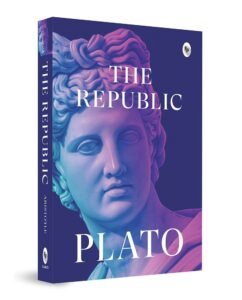“The Republic” by Plato is a foundational text in Western philosophy, presenting a dialogue between Socrates and various interlocutors on the nature of justice, the ideal state, and the role of individuals within society. The work explores the concept of the philosopher-king, the theory of forms, and the allegory of the cave, among other ideas. Plato’s vision of a just society, where rulers are guided by wisdom and reason, has had a lasting influence on political theory, ethics, and philosophy.

Key Takeaways:
1. The Nature of Justice: Plato’s dialogue explores different definitions of justice, ultimately concluding that justice is achieved when each individual fulfills their appropriate role in society, guided by reason and the common good.
2. The Ideal State: Plato outlines his vision of an ideal state, governed by philosopher-kings who possess wisdom and knowledge. He argues that such rulers are best equipped to lead because they understand the true nature of reality and the forms.
3. The Theory of Forms: Plato introduces the theory of forms, suggesting that the material world is a reflection of a higher, unchanging reality. The forms represent the true essence of things, and knowledge of the forms is necessary for understanding truth and justice.
4. The Allegory of the Cave: The allegory of the cave illustrates the difference between the world of appearances and the world of forms. It serves as a metaphor for the philosopher’s journey from ignorance to knowledge and the responsibility of enlightened individuals to guide others.
5. The Role of Education: Plato emphasizes the importance of education in shaping the character and abilities of individuals. He argues that education should be oriented towards discovering truth and cultivating the virtues necessary for just leadership. “The Republic” remains a central text in discussions of political theory, ethics, and the nature of knowledge, offering timeless insights into the human condition and the structure of society.






Discussion about this post